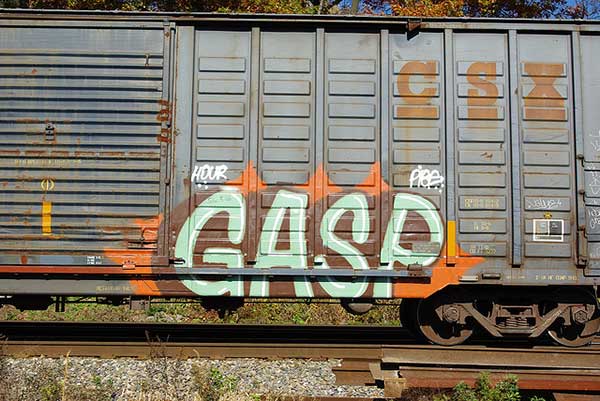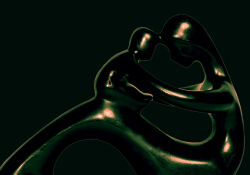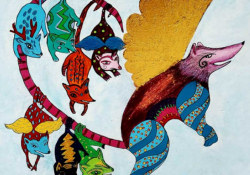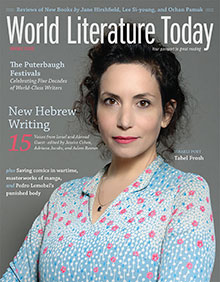Gaspers

If you don’t gasp, find somewhere else to live.
– Vladimir Ivanovich Dal
I knew that editors were the bane of the human race, but I didn’t know just to what extent. Those pettifoggers! They change “wonted” to “wanted” and “lief” to “life” with an iron hand, and they’re dead certain that “afterwards” and “get ahold of” are flagrant orthographic errors. They also consider the word “dead” to be an adjective meaning “no longer living” and nothing else.
Oh, and those wrathful comments on a manuscript’s margins!
“Why does the protagonist say it’s not yet evening? The story takes place in the middle of the night.”
Everyone knows that the only people capable of offending or humiliating others are those who have been offended and humiliated themselves. This man had evidently been dragged through the mud in his day for recklessly placed commas.
But that . . . He’s probably a writer in secret. Everyone knows that the only people capable of offending or humiliating others are those who have been offended and humiliated themselves. This man had evidently been dragged through the mud in his day for recklessly placed commas.
Our meeting was held in the only room of a newborn private publishing house, almost the very first one in Leningrad. Outside, the Soviet Union was quietly collapsing. My tragically pensive interlocutor presided in the editor’s chair across from me, leafing through a manuscript that he himself had requested.
“How could you?” he suddenly lamented, screwing up his face in agony, and read out loud, “‘Impossible!’” she gasped.”
“What of it?” I asked.
“‘To gasp’ means ‘to draw in breath sharply,’” he patiently explained. “If a character says, ‘Impossible!’ then she didn’t gasp. She exclaimed.”
“I also wrote, ‘The car’s motor sputtered and gasped,’” I admitted. “Does that mean that it drew its breath in sharply?”
The editor’s expression became utterly miserable. Not only was this author illiterate; he also knew his poppycock by heart.
“Or did it also exclaim?” I asked, unable to contain myself. “No,” he said through his teeth. “Motors, fish—they can gasp. But as far as people are concerned . . .” “The economy was at its last gasp, for instance.” “But that’s not with words! That happens figuratively, with sounds . . .” We stared at each other, swelling with mutual enmity. “So what do we have? ‘Gasp! she gasped?’” “No. Just, ‘She gasped.’ With no direct speech.” “And what if she thunders? Does that mean her whole body rumbles?” “No. Anything can thunder. But ‘gasp” is just ‘gasp.’”
“Allow me,” I allow-me’d ceremoniously. “In Dal’s comprehensive dictionary of the Russian language, ‘to gasp’ means, and I quote, ‘to utter or emit with gasps.’ ‘To breath in sharply’ is only one of the definitions.”
I must admit, that was a real faux pas on my part, but I had just had the pleasure of reciting part of Vladimir Ivanovich’s first tome, and I could’t help showing off a little.
It proved difficult to faze the editor, though. Shamelessness was part of his job description.
“Dal,” he daled as though nothing were amiss, “has grown largely obsolete.”
“Good gracious!” I good-gracioused. “And is Dostoyevsky also obsolete? Let’s take Dostoyevsky for a minute. He has ‘gasped’ left, right, and center in the sense of—”
“That’s a fine example!” he contemptuously that’s-a-fine-exampled. “If we’re going to take Dostoyevsky as a model of Russian literary language—”
“And who else?” I furiously and-who-elsed.
No, not quite. Simply and-who-elsed. With no direct speech.
Flummoxed, the editor glanced at me and just-not-himmed.
I why-notted.
He couldn’t think of anything better than to just-because. I why-notted again, only this time with three exclamation points.
He couldn’t think of anything better than to just-because. I why-notted again, only this time with three exclamation points.
He evasively well-you’re-not-a-classicked.
I yeah-and-so-whatted. He all-the-same-you-just-can’ted.
That more or less signaled the end of our conversation. I grabbed my manuscript and, morosely fine-we’ll-seeing, left the newborn publishing house.
A loathsome Petersburg snow was pattering outside. On the corner an old woman crowned with a knitted hat pressed leaflets on passers-by and shrilly down-with- the-communed. I pulled my collar up and, despondently oh-the-timesing, headed for Moscow Station.
Translation from the Russian
By Max Thompson










